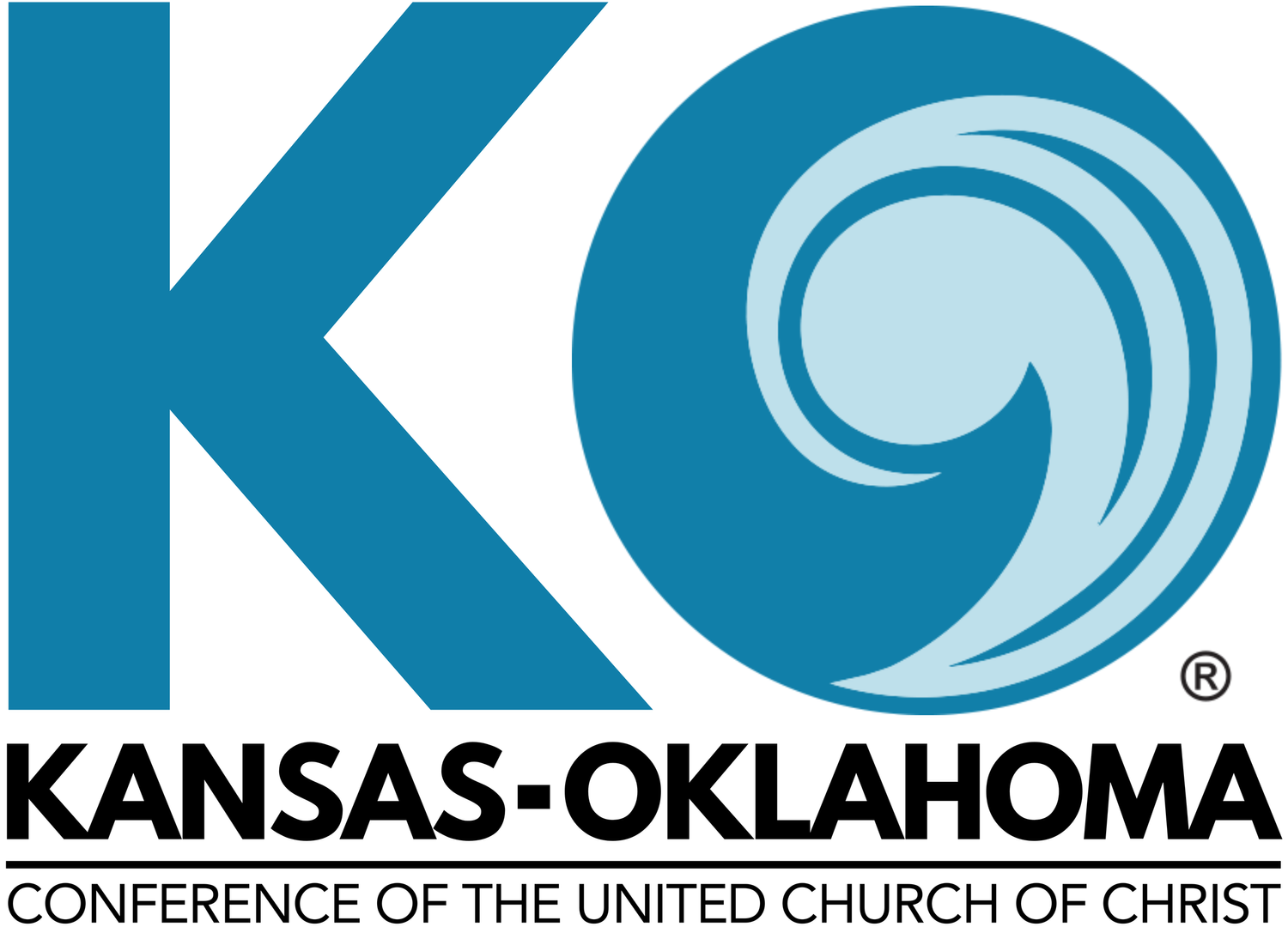Synod 34 Reflections: Dewan Keesee
Synod reflection from Dewan Keesee member of Fellowship UCC, Tulsa.
While I was Synod, I bought a shirt that says “We” on the front. It was a very intentional purchase. As an introvert by default, I have often struggled with the idea of the need for community with a capital C. It is something that I am currently consciously trying to improve upon. In contrast, the political, social and spiritual times that we find ourselves have presented a challenge to the idea that “We” as a project seem quaint and maybe slightly Pollyannish. But it is the project of “We” in this case the United Church of Christ worldwide, that I was blessed to see up close and personal. For me, it was a blessing in its imperfection. As a recovering perfectionist, I know the trap that that can lay in its pursuit. It can be the lie that begats lies. Or in my lay opinion, it can be an example like Jesus that is the star that lights our way for the journey that we undertake knowing the destination is not in question. Nor is that destination the point. None of us can ever be perfect individually. What we can be together is another matter. The two experiences that most illustrate this is the one resolution that failed and the Council for Health and Human Services Ministries or CHHSM.
The resolution that failed was about plant-based eating. Full disclosure, I am someone who eats a plant-based diet and generally agrees with what I feel were the aims of the resolution. My spouse was a delegate and worked many hours to try and salvage the efforts of the resolution’s authors. Nevertheless, the parts of it that could not be changed proved to be what kept it from passing in my opinion. There seemed to be an us versus them ethos to the writing that lacked sufficient empathy to convey an appreciation for the power that “We” contains. If it was there and I missed it, empathy was not felt in the reading or the hearing of the resolution judging by the reaction that it received. In contrast, the drag luncheon put on by The Council for Health & Human Service Ministries was an example of intentionality in the effort to create ‘We’. Visually the panel at the brunch was just as diverse as the attendees that filled the room. Despite the effort that was made to be maximally inclusive, one of the panelists noted that there was not a sign-language interpreter present and that was an area of growth that would be addressed. The way that oversight was handled spoke to the intentionality an earnestness of the effort required to create “We”.
For me, the most touching moment was the tearful thank you extended to CHHSM for allowing them to perform. One of the performers noted that their history with the church did not allow believe that such a space existed. Given the ubiquity of anti-drag legislation and rhetoric, we as a church have an opportunity to create more spaces like this where love is at the center doing work. As CHHSM demonstrated requires intentionality and a dedication that extends beyond the boundaries of perfection. Another essential ingredient to the creation of “We” is accountability. There were a few examples of that on display at various levels including by Traci Blackmon. She on a few occasions noted errors that had recently occurred and some in the past that she acknowledged as a show of accountability. I mention it because as best I can tell they were all unscripted. And honestly, I knew who she was before I know who the UCC was. So, to see someone with that level of gravitas graciously offer herself for correction publicly was refreshing and awe inspiring. That acknowledged, the instance I would most like to recount that illustrated the point was the acknowledgement of the 5th stream. I had known about the four streams that were officially recognized as the denominations that came together to form the UCC. As, I would find out at the luncheon for the United Black Christians, the 5th stream that had gone unrecognized by the official body had been well documented in a text by Reverend Yvonne Delk. Not only did she deliver a rousing account of the Afro-Christian Conventions contributions, but she also issued a challenge to the UCC as a whole and specifically Reverend John Dorhauer that had been made small lunch crowd of largely African Americans to the whole Synod. To his credit he was willing to meet that challenge.
Ultimately, it was a trip that managed to feed my soul despite exhausting my body. If there was a main take away for me, it would be that our redemption, our salvation, our healing is in the journey. Other people might call it the work. Regardless of how it is labeled, its value is not in success or failure. It is in the perfecting and not the perfection.


